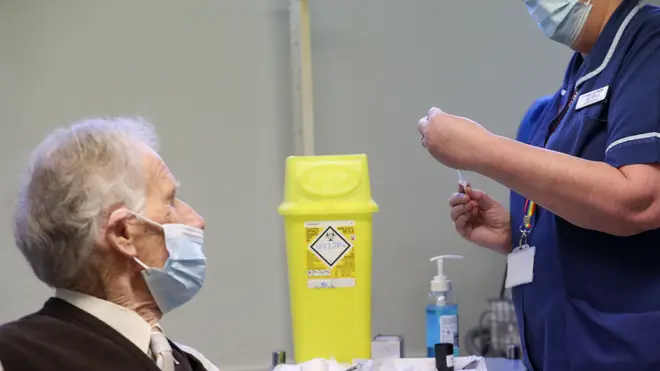
James O'Brien 10am - 1pm
8 May 2021, 17:31

Thousands of NHS workers are suffering from "unacceptable levels of exhaustion", a health chief has warned.
The council chairman of the British Medical Association (BMA), Dr Chaand Nagpaul, said many were reporting "higher levels of fatigue" than ever following more than a year of the Covid pandemic.
More than half of doctors, 58%, surveyed in the UK had worked extra shifts, of which 28% were unpaid, the BMA said.
The BMA's Covid-19 tracker survey in April also revealed 44% of doctors felt pressured by their employer to work additional hours.
A total of 5,500 doctors responded. More than a third – 36% - said they had either skipped full breaks or taken them rarely, with 60% reporting a higher level of fatigue or exhaustion than normal.
Dr Nagpaul said: "To learn that an already depleted and now exhausted workforce feels forced into doing more and more hours, with many reporting higher levels of fatigue than ever, is extremely worrying.
Read more: Sir Simon Stevens to step down as NHS chief and be made peer
Read more: Hospital waiting lists hit record high with 4.7 million in the queue

NHS staff reflect on a year of coronavirus pandemic
"It is putting them at risk and their patients.
"Working 'flat out' without a change to rest and recuperate is simply unsustainable and unsafe.
"The results from the latest BMA's Covid-19 tracker survey show that far too many colleagues across the NHS are experiencing unacceptable levels of exhaustion while being pressured to work extra shifts, and this needs to be addressed as a matter of urgency.
"Governments should be doing all they can to ensure staff have an opportunity to rest and reset - no-one should feel pressured to take the NHS backlogs on a goodwill basis."
A spokesperson from NHS England said: "Local areas should be ensuring that staff are getting the support they need and the NHS has recently set up 40 mental health hubs, providing doctors and other healthcare workers with free, rapid access to local mental health services in addition to increasing access to online support and helplines during the pandemic."